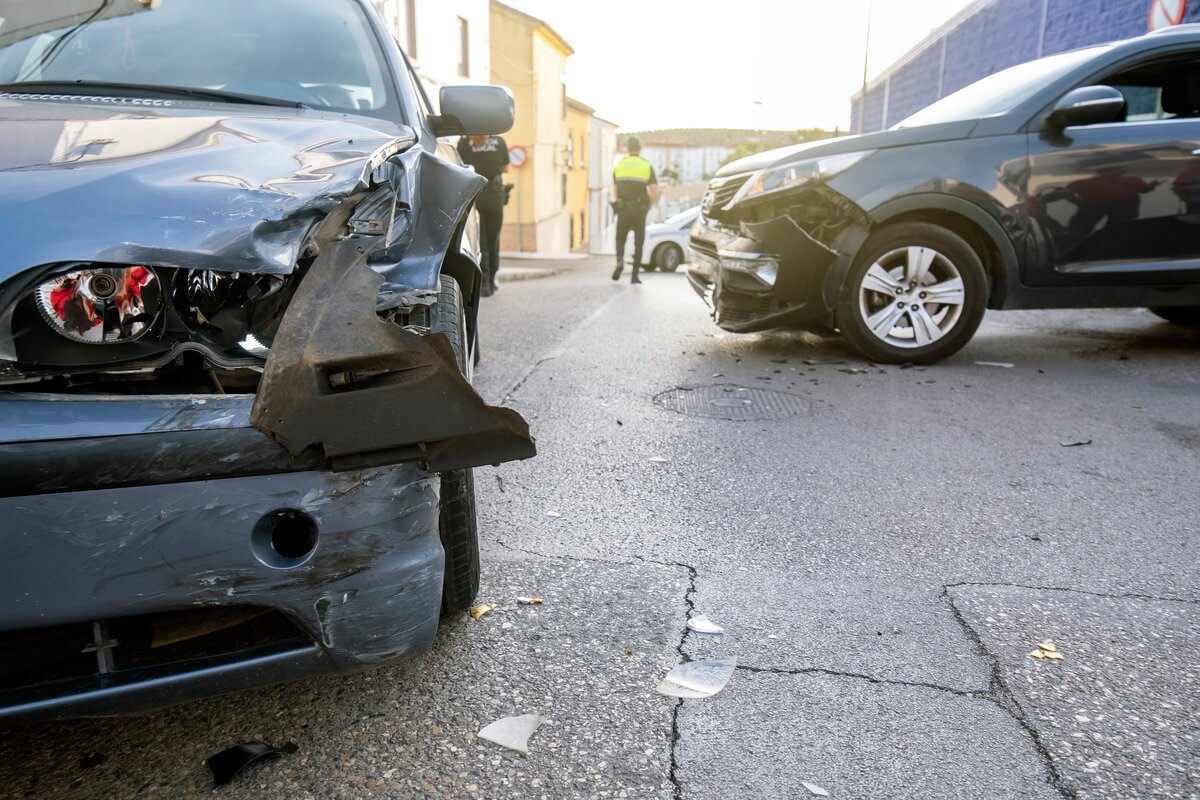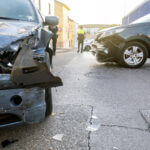
Partner at AKD Lawyers
Practice Areas: Insurance Claims

Car accidents can be stressful and confusing, especially when emotions are high and decisions must be made quickly. Many people unintentionally make mistakes after a crash that can hurt their safety or affect how they handle insurance claims later. Understanding what not to do can help protect your health, rights, and overall well-being.
If you’re in New Orleans, where heavy traffic and unpredictable weather often lead to collisions, it’s essential to know how to handle the aftermath correctly. This guide explains the most common mistakes people make after a car accident, why they matter, and what you should do instead.
Mistake #1: Not Getting Medical Care Right Away
After a crash, many people skip medical care because they don’t feel pain right away. The shock and adrenaline can mask symptoms of serious injuries such as internal bleeding, whiplash, or head trauma. Delaying a medical exam can make recovery more complicated and weaken the link between your injuries and the accident.
Even if you think you’re fine, always see a doctor immediately. Medical records help confirm when and how injuries occurred. Keep copies of reports, test results, and prescriptions as they’re valuable if you need to show the complete picture of your recovery.
“Delaying medical treatment not only endangers your health but can also weaken future insurance claims by creating gaps in your medical record.”
Mistake #2: Admitting Fault or Apologizing at the Scene
It’s human nature to want to apologize after an accident, especially if someone else is upset. However, even a simple “I’m sorry” can be taken as an admission of fault. Determining who is responsible isn’t your job; it’s for insurance companies and investigators to decide based on evidence.
Louisiana’s comparative negligence law (La. Civ. Code §2323) allows you to recover damages even if you’re partially at fault, but your percentage of responsibility will reduce your compensation. Remaining calm, polite, and factual at the scene helps protect your rights and interests.
Mistake #3: Failing to Report the Accident
Some drivers avoid calling the police because they fear the process will take too long. But in Louisiana, you’re legally required to report any accident involving injury, death, or more than $500 in property damage (La. Rev. Stat. §32:398).
A police report creates an official record that includes witness statements, descriptions of damage, and a detailed account of the scene’s conditions. Without it, it becomes your word against someone else’s. Always request a copy of the report for your records; it provides an unbiased foundation if questions arise later.
“Always file an official accident report in Louisiana if property damage exceeds $500 or if there are any injuries, no matter how minor they appear.”

Mistake #4: Ignoring Evidence Collection
If you are physically able, document everything before vehicles are moved. Failing to capture evidence can make it difficult to prove what happened.
Take photos of:
- Vehicle damage, skid marks, debris, and road signs
- Injuries, weather conditions, and any visible hazards
Additionally, collect names, phone numbers, and insurance details from all individuals involved, including witnesses. Write down your version of events while it’s fresh in your mind. This information becomes essential if any disputes arise later.
Mistake #5: Giving a Recorded Statement Too Soon
Soon after the accident, an insurance adjuster may contact you to request a recorded statement. They may seem helpful, but remember their job is to minimize payouts. Saying the wrong thing could lead to reduced compensation or even a denied claim.
Before speaking with any insurer, review what happened, check your policy, and be cautious with your wording. Stick to facts, such as date, time, and vehicle type, and avoid speculating about injuries or faults. Understanding your rights can prevent costly missteps.
Mistake #6: Posting on Social Media
It might feel natural to share your experience online, but social media can do more harm than good after a crash. Insurance companies often monitor public posts, and even unrelated photos can be used to argue that you weren’t as injured as you claim.
For example, a photo at a family gathering could be misinterpreted as proof that you’ve recovered. To stay safe, pause all posts about your health, travel, or daily activities until your situation is fully resolved.
“Avoid posting accident updates on social media; even a simple photo can be misinterpreted and used against you during settlement discussions.”

Mistake #7: Ignoring Follow-Up Medical Care
Many people attend one doctor visit and stop once they start feeling better. But follow-up appointments and continued therapy are crucial for long-term recovery. Skipping them can delay healing and make it seem like your injuries weren’t serious.
Keep track of every appointment, prescription, and test. This documentation demonstrates consistency and strengthens your credibility, should questions arise about your recovery timeline.
Mistake #8: Accepting Quick Settlements
After an accident, the urge to move on is strong. Insurance companies often take advantage of this by offering quick settlements that seem generous but rarely cover future costs.
Before agreeing to any settlement, ensure you’ve completed all medical evaluations and know whether you might face ongoing expenses like physical therapy or lost wages. Waiting until you fully understand your situation helps secure fair compensation.
Mistake #9: Not Understanding Comparative Negligence in Louisiana
Louisiana’s comparative negligence rule can be confusing. If you share any responsibility for the crash, your final compensation will be reduced accordingly. For example, if you’re found 20% at fault and your damages total $50,000, you would receive $40,000.
Understanding how this rule works helps you avoid actions that may be perceived as admissions of fault, such as apologizing at the scene or failing to gather evidence.
Mistake #10: Handling the Process Without Professional Guidance
Dealing with insurance forms, medical expenses, and paperwork after a crash can feel overwhelming. Many people attempt to manage it all on their own, but it’s easy to overlook essential steps or accept less compensation than they are entitled to.
If your accident involves serious injuries or multiple vehicles, getting help from someone who understands Louisiana’s legal system can make the process smoother and less stressful. An experienced New Orleans car accident attorney can explain your options, handle insurance discussions, and help ensure your rights are protected while you focus on recovery.
FAQs
What should I do immediately after a car accident in Louisiana?
Ensure safety by calling 911, seeking medical attention, and gathering all possible documentation, such as photographs, reports, and witness contact information.
Is it necessary to report minor car accidents?
Yes. Louisiana law requires reporting if injuries or property damage exceed $500. A police report protects everyone involved.
How does comparative negligence work in Louisiana?
Your compensation is reduced by the percentage of fault assigned to you in the accident.
Can posting on social media affect my case?
Yes. Insurance companies can use your posts to challenge your injury claims or suggest inconsistencies.
Why is it risky to accept the first insurance offer?
Early offers may not cover future costs such as rehabilitation, lost wages, or continuing medical care.
Conclusion
Car accidents are stressful, but avoiding these ten mistakes can make recovery smoother and less overwhelming. Acting quickly, keeping detailed records, and knowing your legal rights all help protect you in the days and weeks after a crash.
If you’ve been involved in a car accident in Louisiana and need help understanding your next steps, our experienced New Orleans car accident attorneys guide injured drivers through every stage of the process, from documentation to resolution.
Contact Alvendia, Kelly & Demarest Law Firm today for a free consultation and explore how we can help you move forward with confidence.
Categories

In 2003, after being dissatisfied with the quality of legal care for victims of car accidents, Roderick ‘Rico’ Alvendia sought to establish a new firm focused on providing high-quality legal services to aid injured victims and their families. J. Bart Kelly, sharing Rico’s passion for upholding justice, joined the firm later that year, and established a partnership.






